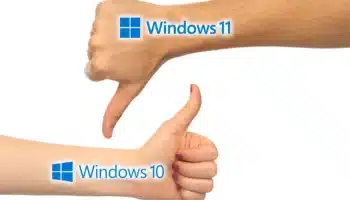In light of news that it has 'flopped,' Google's Nexus One lands on AT&T and Rogers

Google's first attempt at directly selling an Android-powered mobile phone is already being called a flop thanks to reports from mobile analytics company Flurry that estimate sales to have been around 135,000 units in the first 74 days on the market (compared to 1.05 million Motorola Droids, 1 million iPhones.)
However, Google's approach to selling the device is vastly different from the more common methods employed by wireless carriers: it has been primarily sold unlocked for $529 directly from Google, or for $179 with a special T-Mobile plan. Since the device was released, there's been a "Coming soon: Spring 2010" section that shows Verizon Wireless and Vodafone as the next US and European carriers.
FCC: Wireless spectrum 10x more valuable for wireless broadband than for TV

The 300+ page National Broadband Plan that the Federal Communications Commission submitted to Congress today contains some logical goals, some ambitious ones, and some that are sure to cause a good deal of conflict between industries.
One of the most contentious issues also happens to be the most important aspect of the broadband plan: the re-allocation of wireless spectrum for the use of mobile broadband.
IE9 technology preview goes live, Microsoft claims scores 55% on Acid3

Download Microsoft Internet Explorer 9 Platform Preview via Fileforum now.
This afternoon, Microsoft lifted the curtain on the first Internet Explorer 9 technology preview for developers. Initial demos at MIX 10 in Las Vegas by IE9 team leader Dean Hachamovitch reveal a minimum of end user features at this point -- the preview is described as a lightweight frame on top of a highly improved chassis.
UK Lords pass bill to create Internet anti-piracy enforcement office

The British House of Lords has passed a bill that might, if enacted into law, put the UK's Parliament at odds with the European Commission over how best to enforce copyright anti-infringement laws. Called the Digital Economy Bill, it would charge Internet service providers with the task of keeping track of suspected file sharers and copyright violators, and reporting on them to copyright holders as well as to the country's Office of Communications (OFCOM).
As the bill is currently written, OFCOM would be charged with determining the "initial obligations" of Internet service providers with respect to suspected infringers, provided those obligations meet the specific guidelines. It would be up to OFCOM, should the bill be enacted, to determine all the specifics -- the "fiddly bits" -- such as how ISPs monitor their customers ("subscribers"), at what stage it becomes necessary to report on their activities, how long they retain information on those customers, and what else they do with that data. In the UK, regulations enacted by a regulatory body such as OFCOM are called codes.
The National Broadband Plan is complete, now the hard part starts

The Federal Communications Commission is expected to deliver the National Broadband Plan to Congress tomorrow, and today the commission released an executive summary of what the document will contain.
FCC Chairman Julius Genachowski called it, "An action plan, and action is necessary to meet the challenges of global competitiveness, and harness the power of broadband to help address so many vital national issues."
Windows Phone 7 Series actually looks pretty good

Zune -- along with Expression Blend, Silverlight, Visual Studio and XNA -- may yet save Windows Phone 7 Series. During the kick-off MIX10 keynote earlier today, Microsoft product managers showcased features, development scenarios and, most importantly, user experiences derived from Zune HD. Perhaps Windows Phone 7 Series isn't a hopelessly lost cause after all. Microsoft's competitive postion would actually look good, if phones were shipping now and not in six to eight months.
In September, I asserted that Zune HD should have been the Microsoft phone. The user interface and user experience (some of that derived from Zune 4.0 software) is exceptionally good -- particularly coming from Microsoft. Finally, Microsoft is carrying forward and extending a great user interface motif. Better: Windows Phone 7 Series is inheriting and extending the social sharing concepts imbued into Zune 1.0.
Windows Phone 7 Series has Netflix streaming, Xbox Live gaming
Google: No word yet on China pullout, negotiations continue
Despite an erroneous headline crossing wire services early this morning, which led blogs and even news services to believe Google had already begun a pullout from China, a Google spokesperson has clarified for Betanews today that no announcement has yet been made about any such pullout.
Declining to speak further on the matter, the spokesperson reiterated an earlier statement, which the spokesperson says remains true as of this moment: "We are in active discussions with the Chinese government. We have also been clear that we will no longer self-censor in China."
Silverlight 4 RC, the Windows Phone 7 platform, downloadable today

Download Windows Phone 7 Series Developer Tools Customer Technology Preview from Fileforum now.
As expected, Microsoft is opening the gates for the first (probably the only) Release Candidate for Silverlight version 4 today, for developers who have been playing with the beta in Visual Studio 2010 since last November. The message of the day for Monday from Microsoft is Silverlight 4 as the functionality platform for Windows Phone 7 Series. (The "other series," for now, isn't being mentioned -- at least it wasn't as of 10:20 Pacific Time this morning.)
Microsoft unveils a host of Windows Phone 7 Series developer tools

Now that Microsoft has effectively restarted its mobile strategy afresh with Windows Phone 7 Series, third party developers need a way to dig into the platform. So today, Microsoft announced Windows Phone Developer Tools are now available as a free download at developer.windowsphone.com
The tools include: Visual Studio 2010 Express for Windows Phone, Windows Phone 7 Series Add-in for Visual Studio, a Windows Phone 7 Series emulator, and XNA Game Studio 4.0.
IE9, Windows Phone, Silverlight: What can we expect from Microsoft at MIX?

At this moment, Microsoft is kicking off what is probably the most important MIX conference since 2006, with three make-or-break developments in key product categories taking the spotlight. Since January, the company has dished up a very cloudy picture of Windows Phone, and I don't mean in the sense of "cloud computing." That incomplete picture of the company's newly bifurcated roadmap was perhaps intended to spark anticipation and excitement, but instead in some quarters, it's sparked outright anger: What is the system that we now know to be Windows Mobile, supposed to become?
Windows Phone, and Windows Other Phone. At CES, we were told to expect the future of Windows Mobile. Correction, we were told later, it's not Windows Mobile. That particular episode was reminiscent of a 1970s detergent commercial: No, Mrs. Clawson, you're not using Tide, you're using new improved Tide! So we had a cute little name change. Correction, no we didn't, because New Improved and Classic will co-exist. But will they be compatible? Well, suppose Classic edition is called "Starter Series," or something to that end. If you start at one end of the product line, that naturally implies you're progressing to the other end, and that implies compatibility, right? Sure. Correction, not necessarily.
The missing dimension in 3D TV

I risk being tagged a curmudgeon, but I'll say it anyway: 3D television isn't ready for prime time. It isn't ready for your living room, either (or any living room, frankly).
Headlines claiming 3D TV to be the greatest thing since the creation of 2D TV, are sadly more than a little hyperbolic, and I wish the industry would ease back on the PR push to get us to replace our still-new LCD and plasma televisions with 3D versions.
Apple's HTC patent lawsuit is a bluff

Now that buzz about Apple's patent lawsuit against HTC has quieted a bit, I'm ready to pipe in with some contrarian analysis. I agree with other pundits suggesting that the lawsuit is competition by litigation, where Apple hopes to scare off mobile manufacturers from licensing Android. Surely some handset manufacturers will pull back, but they would be foolish to do so. For other existing and potential Android licensees, the lawsuit is a get out of jail free card. Apple's patent case should embolden, not restrain them. There may never be a better time to license Android than now.
Apple claims infringement of 20 patents related to iPhone's user interface. Engadget's March 2nd patent breakdown is a must-read clinical analysis. But there's more to competition by litigation than the actual patents. Lawsuits often aren't so much about what's right but what lawyers think they can prove; often the winner tells the more believable story, even in patent cases. Similarly, much strategy goes into lawsuits -- how they're presented, where they're filed and when. Then, of course, there is whom. In this case, Apple took on HTC and not Google. Now why is that?
Bing gains show why Microsoft-Yahoo search deal is a dumb idea

One of Microsoft's major justifications for the Yahoo search deal is scale. CEO Steve Ballmer has repeatedly asserted that greater scale would allow Microsoft to improve search accuracy. Just last week he told Search Marketing Expo West attendees: "The ability to put together Yahoo's volumes and Microsoft's volumes and use that in a way that improves the experience more, let's call it all involved parties, we think is absolutely fantastic."
But the scale argument presumes that Microsoft and Yahoo would combine search share. The deal is in place but not fully implemented, and already Microsoft's Bing is taking away search share from Yahoo -- not Google. In February, Bing's US search share reached 11.5 percent, up from 11.3 percent month over month, according to ComScore. Yahoo share declined to 16.8 percent from 17 percent during the same time period. In June 2009 -- the month before announcing their search deal -- Yahoo search share was 19.6 percent and Microsoft 8.4 percent. But Microsoft already was rising, because of the Bing launch and millions of dollars in supporting advertising. For perspective, Google search share was 65.5 percent in February and 65 percent in June 2009.
Italy launches a beta of Microsoft Tags for tourism

Last week, I wrote a little article about Microsoft's four-color approach to QR black-and-white barcodes, the still-in-beta Microsoft Tag, which was also related to the company's first official Android application.
I only briefly touched upon the many things that are being done with QR codes: advertisements that you scan with your cell phone camera to pull up related content on the Web, business cards that you can scan for an instant call to the card's owner, or boxes that you can scan for an instant Web-based list of contents.
BetaNews, your source for breaking tech news, reviews, and in-depth reporting since 1998.
Regional iGaming Content
© 1998-2025 BetaNews, Inc. All Rights Reserved. About Us - Privacy Policy - Cookie Policy - Sitemap.





